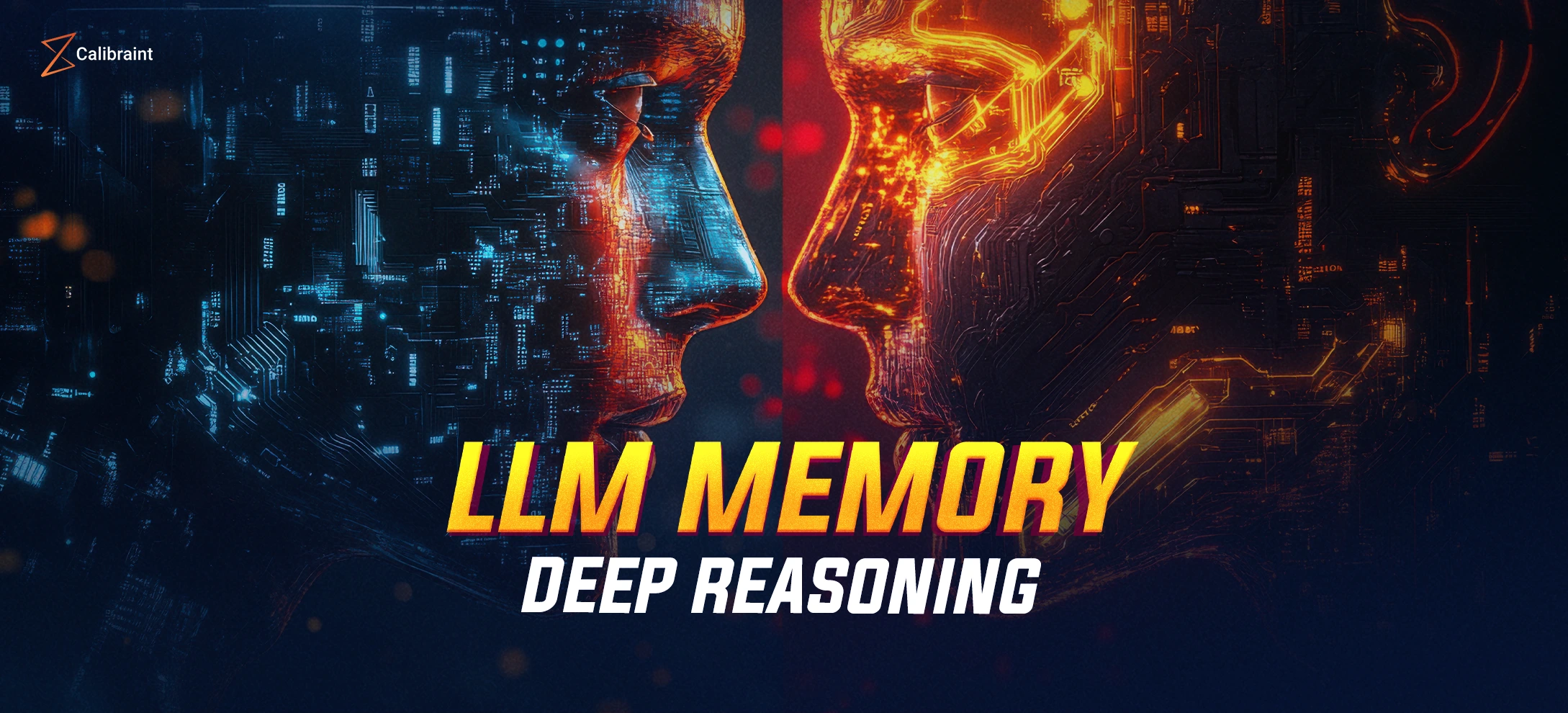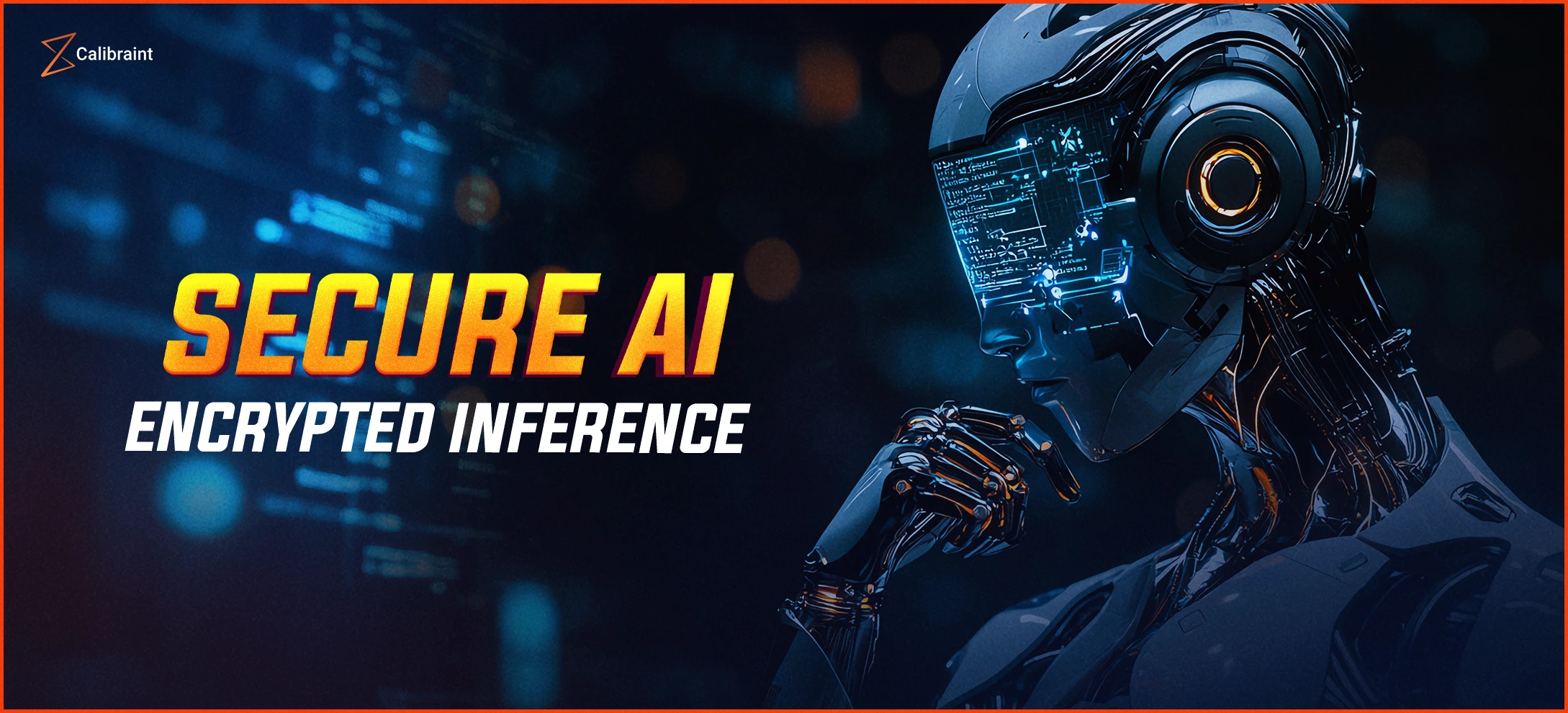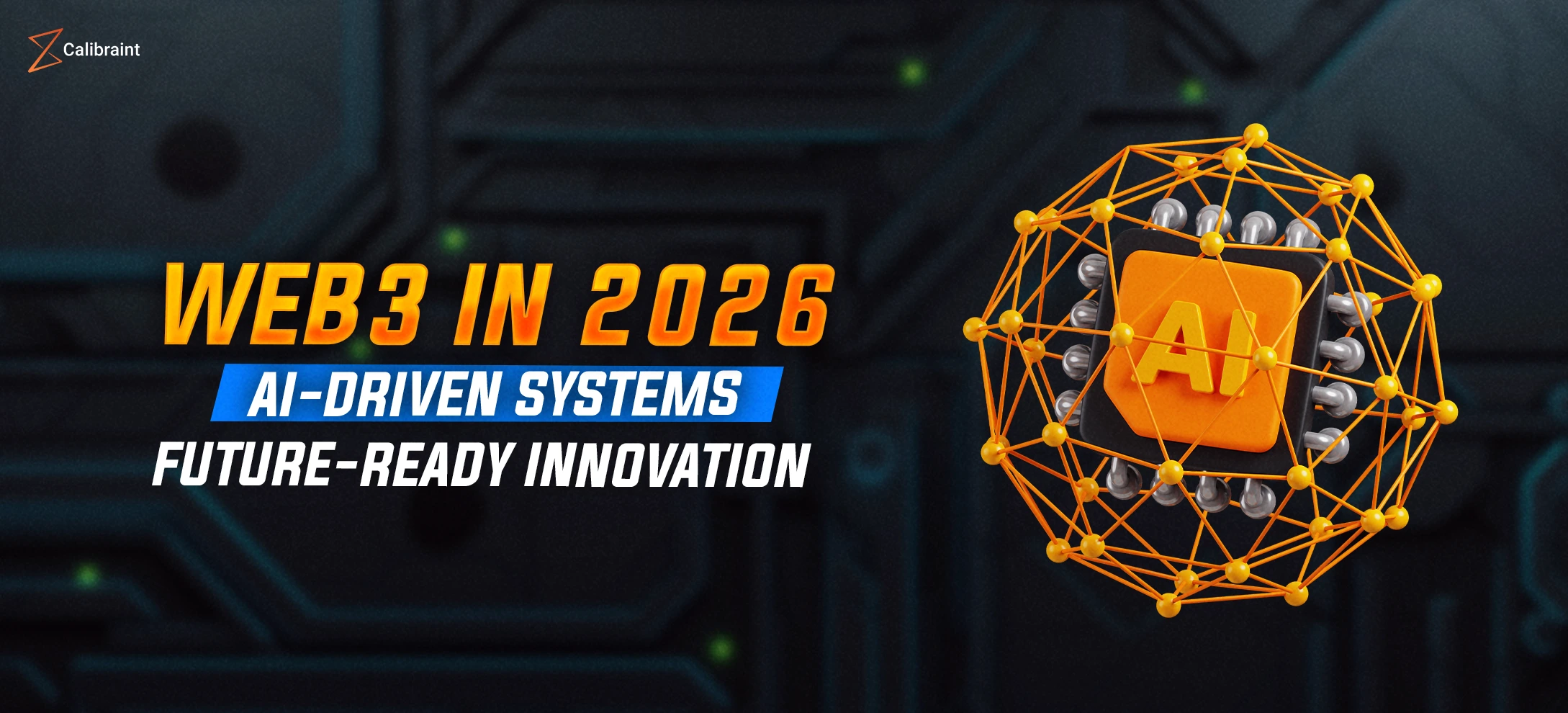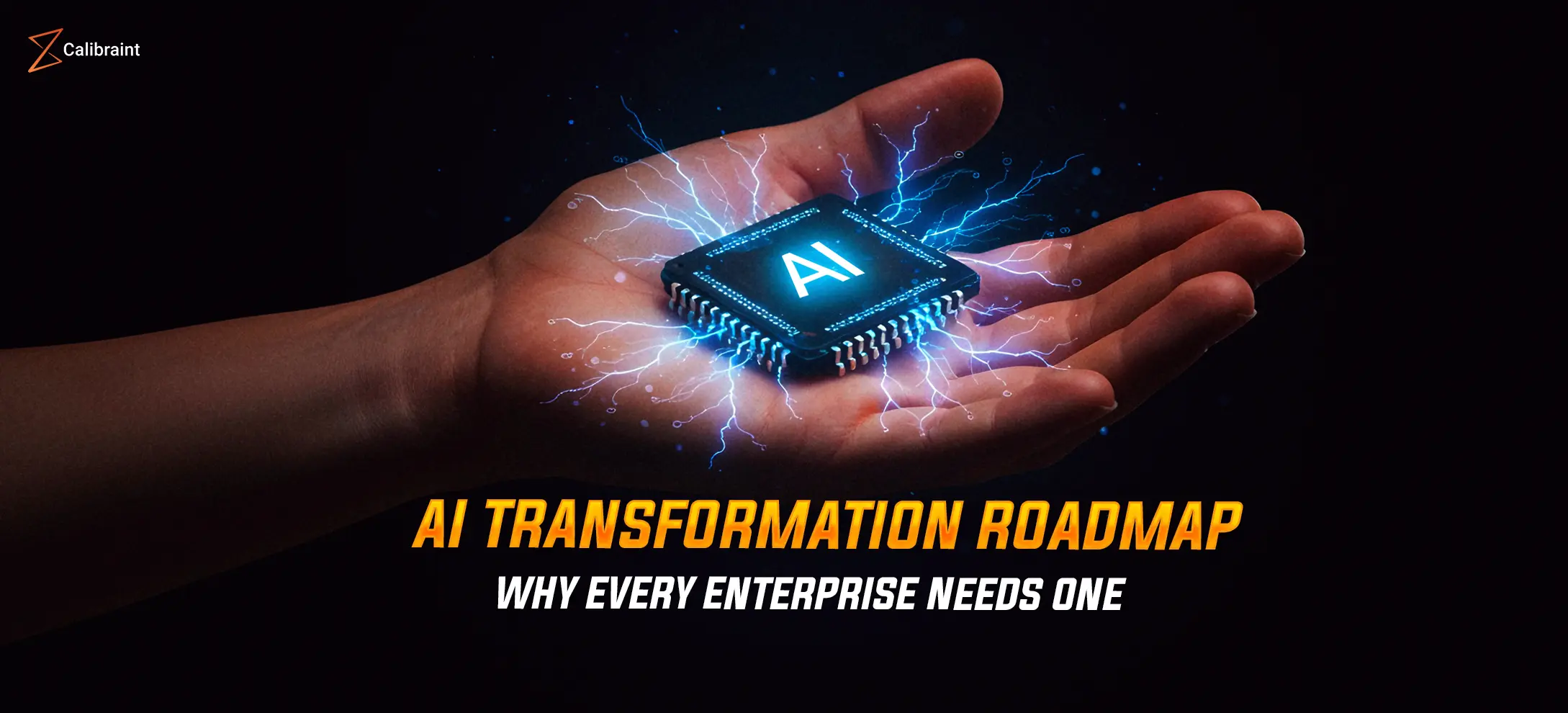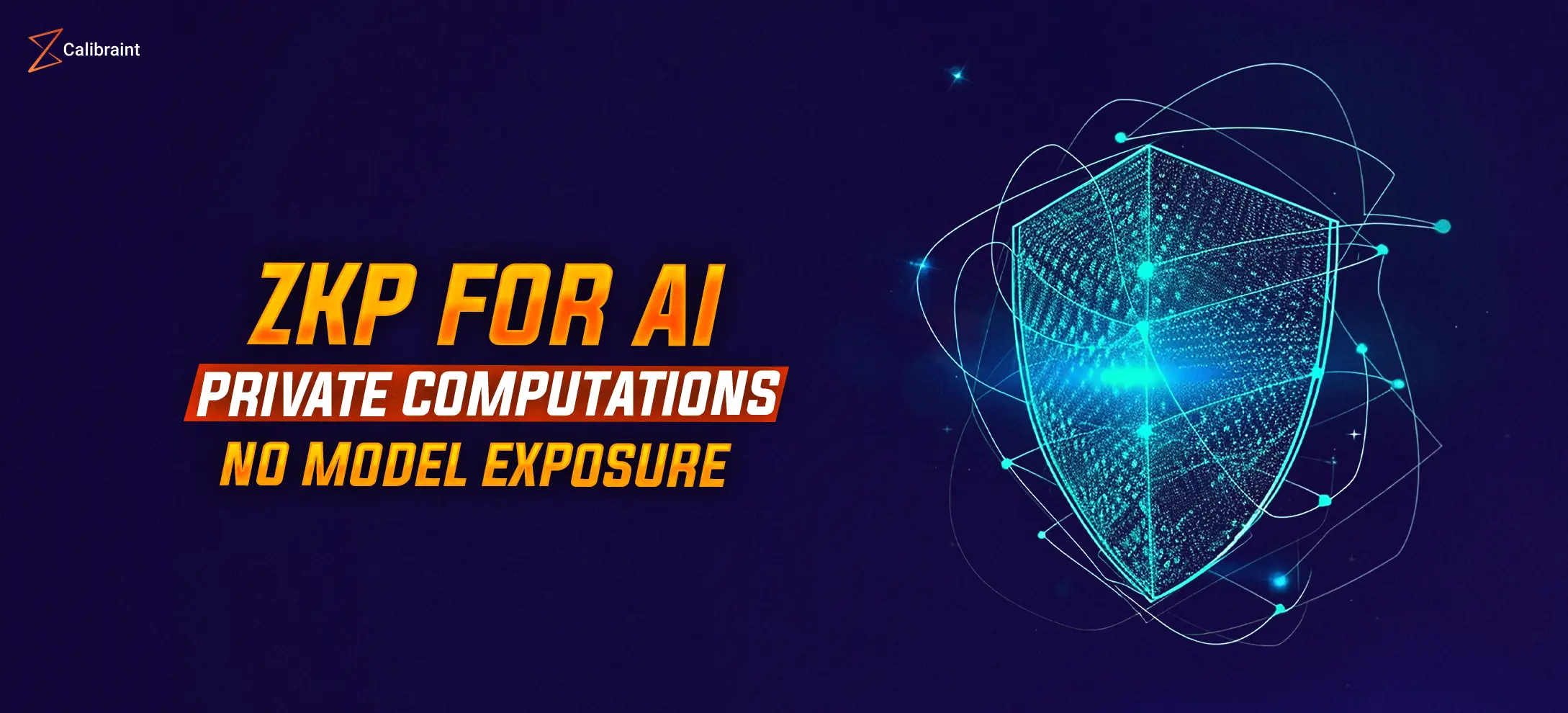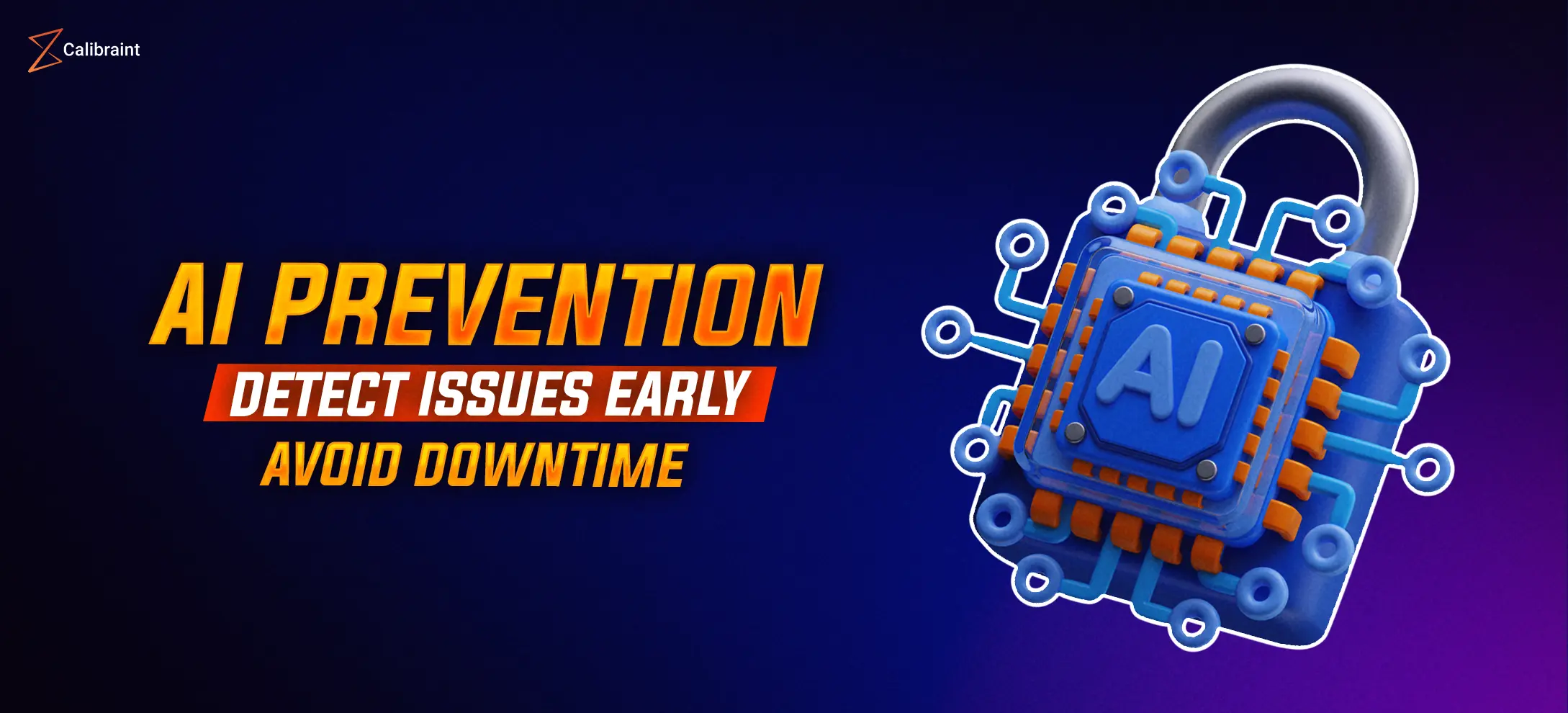Integrating AI with Modular Blockchains for Next-Gen DApps: The Future of Decentralized Intelligence
Calibraint
Author
October 13, 2025
Last updated: November 14, 2025
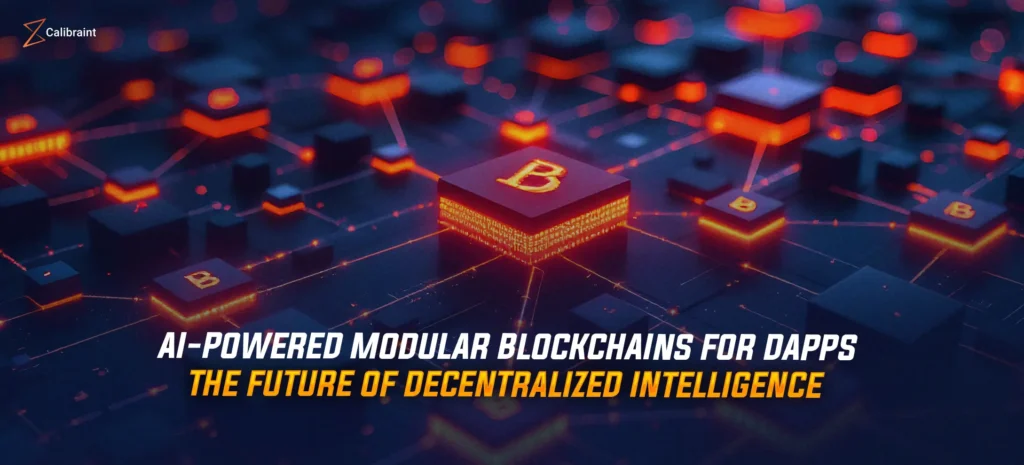
Let’s be honest, enterprises have been hearing about AI and blockchain for years. But until recently, their integration felt more theoretical than tangible. Today, that is changing fast. As industries push for automation, scalability, and data transparency, the convergence of integrating AI with modular blockchains is emerging as a breakthrough that redefines how decentralized applications (DApps) are built and delivered.
According to a report by MarketsandMarkets, the global blockchain AI market is projected to reach $980 million by 2027, growing at a 23.6% CAGR. This acceleration shows that enterprises are no longer experimenting. They are operationalizing. The reason is clear: combining AI integration with modular blockchains brings adaptability, efficiency, and intelligent automation to next-gen DApps, solving the limitations of both standalone technologies.
In this blog, we will explore how this integration is revolutionizing DApp ecosystems, what benefits it delivers for enterprise-scale solutions, and how forward-thinking companies can leverage this synergy for business advantage. You will also discover how partnering with expert teams in DApp development can accelerate innovation while maintaining governance, data privacy, and interoperability.
Why Integrating AI with Modular Blockchains Is a Game-Changer
Integrating AI with modular blockchains isn’t just a tech upgrade, it’s a structural evolution in how decentralized ecosystems think, learn, and evolve. Traditional blockchains are monolithic by design, where consensus, execution, and data availability are tightly coupled. This rigidity often limits scalability and performance. Modular blockchains, however, decouple these components enabling developers to customize each layer independently.
Now, imagine introducing AI integration into this environment. The blockchain handles secure, verifiable transactions while AI layers provide predictive analytics, automation, and real-time optimization. The result? Next-gen DApps that are smarter, more adaptive, and inherently self-improving.
Take Autonolas or Fetch.ai as real-world examples both combine blockchain and AI to enable autonomous economic agents that perform complex transactions without human intervention. These models are early glimpses into a future where decentralized applications behave intelligently across modular networks.
The Strategic Advantage of Modular Blockchains
To understand the potential of integrating AI with modular blockchains, it is important to recognize what modularity offers to enterprises and developers alike.
- Scalability Without Compromising Security
Modular architecture allows each blockchain layer, such as execution, settlement, and consensus, to operate independently. This flexibility enables massive scalability while maintaining decentralized integrity.
- Interoperability Across Networks
Unlike monolithic systems, modular blockchains seamlessly interact with multiple ecosystems. For enterprises, this means freedom from vendor lock-in and easier integration with existing systems.
- Tailored Governance Models
Modular designs allow enterprises to define governance frameworks suited to their business requirements. AI integration further enhances governance by analyzing on-chain behaviors, predicting potential risks, and ensuring compliance proactively.
With these advantages, modular blockchains become the ideal environment for AI integration, creating a foundation for more responsive and resilient decentralized applications.
How AI Integration Transforms Next-Gen DApps
When we talk about AI integration in blockchain, it is not only about analytics or automation. It is about transforming next-gen DApps into intelligent ecosystems that can make autonomous decisions and evolve based on real-world data.
- Predictive Intelligence in Smart Contracts
AI models embedded in smart contracts can assess risk, predict failures, and dynamically adjust parameters. This makes DApps more reliable and stable in volatile markets, especially within DeFi, logistics, and healthcare sectors.
- Enhanced Security and Fraud Detection
Blockchain provides transparency, but AI adds proactive defense. Machine learning models continuously monitor on-chain activity, detect anomalies, and prevent fraudulent transactions before they escalate.
- Automated Resource Optimization
AI-driven modular blockchains can automatically allocate resources based on demand, reducing congestion and improving energy efficiency.
- Data Privacy Through Federated Learning
Integrating AI with modular blockchains enables federated learning, allowing AI models to train on distributed datasets without exposing private information. This balance between privacy and intelligence makes enterprise-grade solutions more trustworthy.
For enterprises looking to go deeper into AI-driven insights, exploring Actionable AI for Large Action Models can provide practical guidance on leveraging advanced AI techniques to optimize modular blockchain performance and DApp intelligence.
This dynamic synergy transforms decentralized applications from being static to being adaptive, capable of learning and improving on their own.
Enterprise Use Cases of Integrating AI with Modular Blockchains
Enterprises across industries are already exploring the benefits of this integration in real-world applications.
- Supply Chain Intelligence
AI analyzes logistics data while modular blockchains ensure transparency and authenticity. Enterprises like IBM and Maersk use this combination to build responsive and traceable global supply chains.
- Decentralized Finance (DeFi) Risk Management
Merging AI integration with modular blockchains enables predictive risk scoring and automated fraud detection, improving DeFi platform reliability and user confidence.
- Healthcare Data Management
Hospitals and research institutions are using decentralized AI to analyze patient data securely while ensuring compliance with global privacy standards such as HIPAA.
- Smart Cities and IoT
Next-gen DApps powered by AI-driven modular networks are being deployed to manage energy, transportation, and safety systems autonomously.
- Gaming and Metaverse
Intelligent avatars, adaptive economies, and AI-managed governance systems are being built on modular blockchains to ensure scalability and transparent asset ownership.
Market Insights and Competitor Landscape
Leading blockchain ecosystems such as Celestia, Polygon Supernets, and Cosmos are pioneering modular frameworks, while AI-driven platforms like SingularityNET and Ocean Protocol demonstrate how machine learning can be decentralized effectively.
The true differentiator now lies in integrating AI with modular blockchains, where infrastructure becomes not only composable but also cognitive. Enterprises adopting this hybrid approach report faster transaction throughput, reduced operational costs, and greater data reliability.
A recent Deloitte Tech Trends 2025 report found that 63% of enterprise blockchain adopters plan to integrate AI models into their decentralized systems within three years. This confirms that intelligence is becoming a native part of decentralized infrastructure, not an external layer.
Challenges and How Enterprises Can Overcome Them
While integrating AI with modular blockchains offers major potential, the transition also introduces challenges that enterprises must address strategically.
- Complex Infrastructure Management
Integrating AI frameworks with modular blockchain layers requires specialized expertise. Partnering with skilled DApp development teams helps ensure architecture optimization and smooth integration.
- Data Interoperability
Achieving consistent data standards across multiple blockchains and AI models is difficult. Industry-wide protocols and semantic AI are evolving to address this issue.
- Regulatory and Compliance Issues
As AI and blockchain converge, global regulatory frameworks are still developing. Transparent auditing and ethical AI governance can help enterprises stay compliant.
- Cost and Resource Management
Initial implementation can be costly, but modular scalability allows enterprises to expand gradually and reduce costs over time.
Overcoming these challenges requires careful planning. Start with small-scale pilots, integrate incrementally, and measure ROI through efficiency gains and user adoption.
Business Impact: From Automation to Intelligence
The most transformative aspect of integrating AI with modular blockchains lies in how it enables businesses to move from automated to intelligent operations. Instead of executing fixed workflows, systems can now learn, predict, and adapt dynamically.
Key business benefits include:
- Operational Efficiency: Up to 30% faster transaction validation and data reconciliation.
- Cost Reduction: Automated verification processes lower operational overhead by 25%.
- Data Confidence: AI-driven insights improve auditability and risk prediction.
- Customer Experience: Real-time personalization enhances satisfaction and loyalty.
This integration makes DApps more than just decentralized tools. They become intelligent collaborators capable of learning from each interaction and optimizing for better outcomes.
The Road Ahead: Building Future-Ready Decentralized Applications
The next five years will witness a surge in next-gen DApps that combine AI integration with modular blockchains. These applications will not just process data but understand and act upon it.
For enterprises, now is the right time to invest. Early adoption of this integrated ecosystem can provide a lasting competitive advantage through faster innovation, smarter operations, and improved governance. Partnering with experts in DApp development ensures the underlying architecture aligns with long-term business goals, compliance, and user experience.
As decentralized technology continues to evolve, integrating AI with modular blockchains will become the defining factor for intelligent, scalable enterprise systems that combine automation, analytics, and autonomy.
Conclusion
The convergence of AI integration and modular blockchains is already reshaping the future of digital ecosystems. Enterprises that act today will lead tomorrow’s decentralized economy with smarter, faster, and more secure solutions.
By embracing this model, businesses are not just upgrading technology; they are reimagining how ecosystems function in a world driven by data intelligence. With Calibraint’s DApp Development Services, enterprises can unlock this transformation with confidence, scalability, and strategic precision.
In a data-driven economy, integrating AI with modular blockchains ensures your organization is not simply adapting to change but defining it.
Ready to transform your enterprise with intelligent, next-generation DApps? Connect with Calibraint today and start building the decentralized future your business deserves.
Calibraint
Author
October 13, 2025
Last updated: November 14, 2025






















